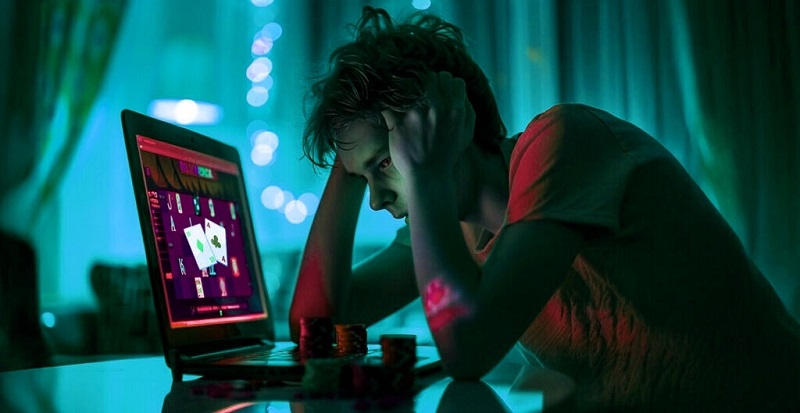
The arrival of online betting companies in the country has generated a strong debate not only about the serious problem of gambling addiction that affects young people, but also because of suspicions about alleged fixing of results in football. This has been one of the reasons why sports sponsors related to betting houses were banned or directly disappeared in the Spanish and Italian leagues. However, while the main leagues in Europe continue to prohibit sports sponsorships from betting houses and discourage online ones, here the government is paving the way for them. Therefore, it is not surprising that the national government has put at the head of the Childhood Secretary to Juan Ordoñez, a former CEO of Codere Casino Onlinemain sponsor of the River Plate soccer club.
What do the different projects being discussed say?
Getting involved with online betting and gambling among youth means exposing two issues. On the one hand, in online betting there is a dispute for control and economic power, where there are not only businessmen, but also direct political leaders. On the other hand, there is no space with interdisciplinary mental health teams that can work with young people who need care. Faced with the dismantling of health that the Milei government has been promoting, the way out of this depends on the ability to pay for treatment individually.
In a plenary session of commissions that brought together representatives of five legislative areas (Addiction Prevention, Public Health, IT, Criminal Legislation and Families and Children).
With the signature of a majority opinion and another minority, the regulations linked to the prevention of gambling addiction, the regulation of games of chance and online betting were ready to be discussed in Congress. The projects under consideration, which were presented by the Civic Coalition, Unión por la Patria, Federal Encuentro, Democracia para Siempre and the PRO, aim to modify Law 26,934 on the prevention and comprehensive and interdisciplinary approach to gambling addiction. virtual chance in children and adolescents; a Comprehensive Plan to address problematic consumption; and the prohibition of online gambling advertising and the limitation of advertising in the broadcast of professional football.
The PRO project, La Libertad Avanza and the UCR, focus on maintaining the business of gambling entrepreneursprotected by “freedom of expression and rights on the Internet.” They argue that advertising should be restricted for children, but without harming other fundamental rights (that of profit, of course). In the midst of the week’s scandal, deputy Silvana Giudici (PRO) developed his proposal to “punish the intermediary” who facilitates betting, without criminalizing the platforms themselves when it is known that the issue is so complex in homes, given that many times in families there are intermediaries who operate. as “cashiers”: as they are called those who accept bets and money through a virtual wallet, and give them the betting slips (which act as a receipt for a winning bet). The cashiers pay the bettors. what they have won if their bet has been successful.
Why so much focus on these “intermediaries”, which are necessary for the bets to develop and so much freedom for the CEOs of the platforms?
Business is business
The main politicians and businessmen in the legal gambling market in our country combine multinationals with historical gambling businessmen.
The intendant of Pilar, Federico Achával, who owns the racecourse, is associated with the Danish multinational Shape and the Greek Intralot. It is owned by one of the best known, Bet Warrior.
We met Daniel Mautone when his company “Casino Victoria”, I sponsor travel events with Jessica Cirio, partner of the former Buenos Aires chief of staff, Martín Insaurralde. But if we talk about online betting, Mautone is a partner of Betsson.
Bplay is owned by Antonio Tabanelli, a historic gambling entrepreneur, known for his association with iconic betting houses such as 888. This company operates nationwide, competing with giants such as Codere, a Spanish multinational which we see on the River Plate t-shirt.
In the province of Buenos Aires, Companies like Playtech are linked to Roberto Schreder’s Tandil casino. It is important to mention Bingo Chivilcoy, property of judicial operator Daniel “El Tano” Angelici, that young Alfonsinista from the 80s who ended up being a bingo magnate and president of Boca, and also a radical operator in the 90s of presidential liaison with federal judges and intelligence services, is a prominent figure in the online betting market, along with others legal companies registered under Bet.ar and authorized by the authorities of each district.
Among other notable brands In the betting market there are Bet365, associated with Berazategui bingo and directed by Oscar Stefani, and William Hill, a well-known UK betting brand with no active license in Argentina, where Sportbet and Bingo de Nazareno La Cuanti operate.
Bet on links and recreate other imaginaries
It is essential to consider how technologies and connectivity have changed the way in which childhood, adolescence and youth connect and experience leisure and entertainment. The use of screens has created new forms of sociality, which redefine the ways of being and being in the world. This delineates a new subjectivity promoted by continuous interaction with digital devices, legitimizes an unlimited use of time and energy, and is fertile ground for entrepreneurs to monetize every moment of the experience in virtuality.
As we have been denouncing in The Daily Leftone of the reasons that aggravate this problem that affects young people is the social and economic crisis in Argentina, crossed by the alarming increase in poverty and the loss of numerous jobs. Instead of promoting online gambling, the reality faced by these young people should be discussed. It is unacceptable that the granting of licenses to operate virtual bets continues to increase. It is necessary to reinforce warning campaigns about the risks of addiction and the disorders that the search for easy money can generate. Analyzing this crisis does not invalidate asking what happens to the bonds of adolescents, what happens to their leisure time.
In a world where neoliberal culture prevails, which has led to links being built through the image, of the supposedly successful models that must be shown, singularity is destroyed and with it the possibility of facing the problems of the adolescence.
Online gambling is a relatively recent phenomenon, but for decades parents have been asking about how to limit their teenage children’s access to video games in which they spend entire nights without sleeping because they are “subjected” to a machine.
This addiction, which is built when the word is missing, It generates emotional and psychological consequences that can also include mood changes, sadness and insomnia, higher levels of anxiety, depression, impulsivity, risk propensity and disinhibition.
From a psychoanalytic perspective, problem gambling in young people is understood as a symptom that reflects internal conflicts and emotional needs that cannot be expressed. Whilethe gaming experience provides a sense of illusory control over chance, offering temporary relief from internal anguish. At the other end of this compulsion to not leave the screens is the difficulty in meeting peers. It is not an individual problem of childhood and adolescence; It is a culture of consumption that does not offer anything other than consumption of ideals: “If you do not enter into these, it is better to seclude yourself behind a screen so that no one sees you”; and Fixating on an “object” is the way they find to achieve a supposed immediate satisfaction of gratification. Gambling, with its promise of quick and exciting rewards, becomes a mechanism for obtaining that gratification easily and seemingly effortlessly. This is illusory and quickly leads to frustration.
As we see, no bill contextualizes who those adolescents and young people are who are experiencing a subjective condition such as gambling addiction. Faced with this situation, not only are more health professionals available to address these problems needed; but also that schools not only accompany the pedagogical learning journey, but also offer leisure time with their peers. That, in addition to this, the educational community be offered sports clubs financed by the State, cultural spaces where they can learn different techniques, places where they can go see shows that recreate the imagination.
Source: www.laizquierdadiario.com

